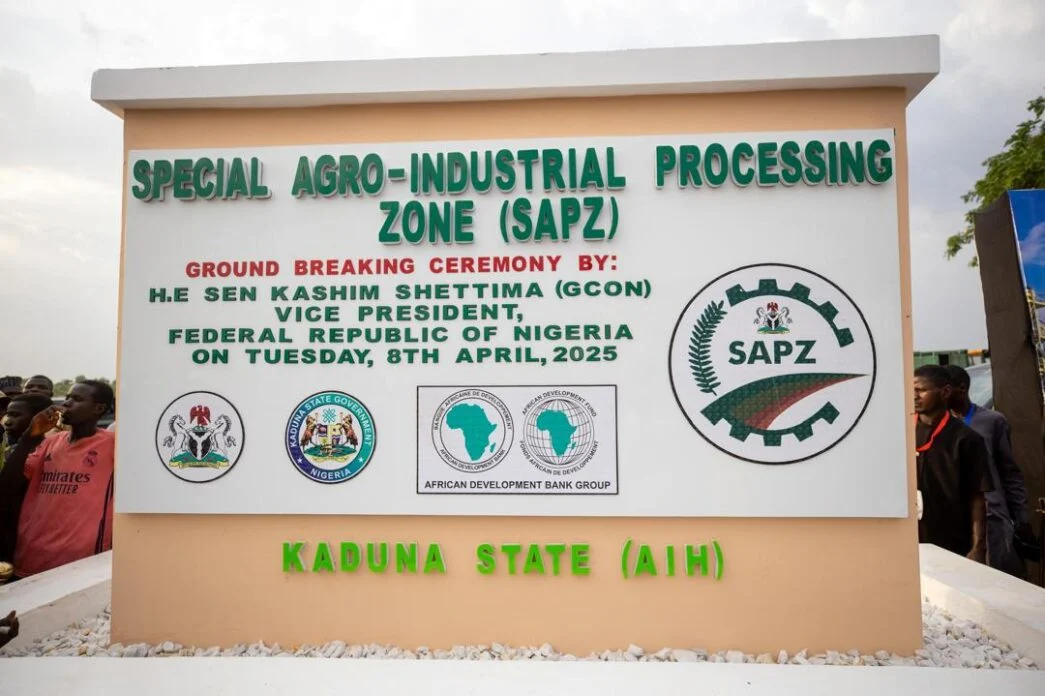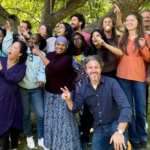By Destiny Uko
Despite its vast agricultural resources, Nigeria has not harnessed its full export potential for decades. Farmers repeatedly grow crops only to sell them raw, underpaid, vulnerable to spoilage or simply for substantial use.
The recently launched Special Agro-Industrial Processing Zones (SAPZ) initiative attempts to fill in this critical gap.
It has begun a major change in the processing, packaging, and storage of farm produce as well as introduced advanced manufacturing facilities for smarter, export-ready production with many farming communities as happy beneficiaries.
These zones are designed to shift the agricultural narrative from merely crop production to “active industry,” attractive to both young and old.
SAPZ phase I kicked off in 2022, beginning with eight states—Kaduna, Kano, Kwara, Cross River, Imo, Ogun, Oyo, and the Federal Capital Territory (FCT).
Certain crops are exclusive to different areas. Kaduna, for instance, will produce maize, soybeans, ginger, and tomatoes, while Cross River will focus on cocoa, cassava, and rice. Oyo has already launched an Agricultural Transformation Centre, which features livestock and poultry production.
These farms do not operate in isolation. SAPZ zones bring structured industrialised farming closer to farmers through agro-industrial hubs, transformation centres, irrigated farmland, farm-to-market roads, processing factories, cold storage, and skills-training facilities, all pointing towards reducing post-harvest losses, improving income levels and export opportunities.
Estimates show that 1.5 million households stand to benefit firsthand. Job creation is expected to exceed 400,000.
The choice of the eight pilot locations was strategic. Representing Nigeria’s six geopolitical zones, those areas were selected for their production potential, infrastructure, and market access.
The African Development Bank leads the financing with $210 million, the Islamic Development Bank (IsDB) and IFAD contribute another $310 million, and the Nigerian government adds $18.05 million.
By driving this pacesetting model, SAPZs create higher-value products, promote improved shelf life, and better export potential. For farmers, that means better prices and reduced spoilage; for Nigeria, it means moving from exporting raw food items to exporting branded, processed goods.
The project includes technology and other advanced measures and extension services to uplift local agripreneurs.
Phase II is already underway. This will spread the programme across the remaining 29 states in the country.
If successful, SAPZ could become a national grid of agro-industrial clusters, each tailored to local strengths but interconnected to national and global markets.
The results could be hugely progressive—an improved economy, stable jobs for youth and women, reduced food imports, minimal post-harvest losses, and higher export revenue.
SAPZ has training centres and job hubs as part of the package, which could cut down urban migration. By establishing processing and learning facilities close to farming communities, the programme offers employment opportunities for youth and women in rural areas.
In this way, agricultural talents are retained to stimulate local economies.
Nigeria has long wallowed in low utilisation of its crops, climate, and labour. With SAPZ, the country finally has a clear blueprint for building a sustainable green future, the economy stands a chance to witness a lasting renaissance, and the country is fully alive.
Despite rich agricultural resources, Nigeria has struggled to realize its full export potential due to the sale of raw produce vulnerable to spoilage and underpayment. The Special Agro-Industrial Processing Zones (SAPZ) initiative addresses this by introducing advanced processing, packaging, and storage facilities, shifting agriculture from crop production to an industry ready for export. Launched in 2022 across eight states, SAPZ facilitates integrated farming systems with agro-industrial hubs and transformation centers, aiming to reduce post-harvest losses, improve income levels, and create over 400,000 jobs.
The initiative is financed by $538.05 million from the African Development Bank, the Islamic Development Bank, IFAD, and the Nigerian government. The strategic choice of pilot locations across Nigeria's six geopolitical zones optimizes production capacity, infrastructure, and market access. By promoting branded and processed goods over raw exports, SAPZ enhances product value, shelf life, and market potential, leading to better prices for farmers and reduced spoilage.
SAPZ also focuses on technological upgrades and training, providing job opportunities particularly for rural youth and women, mitigating urban migration. Phase II aims to expand to 29 more states, potentially transforming Nigeria's agricultural landscape into interconnected agro-industrial clusters, boosting local economies, creating stable jobs, reducing imports, and increasing export revenue. With SAPZ, Nigeria seeks a sustainable agricultural future and revitalized economy.






